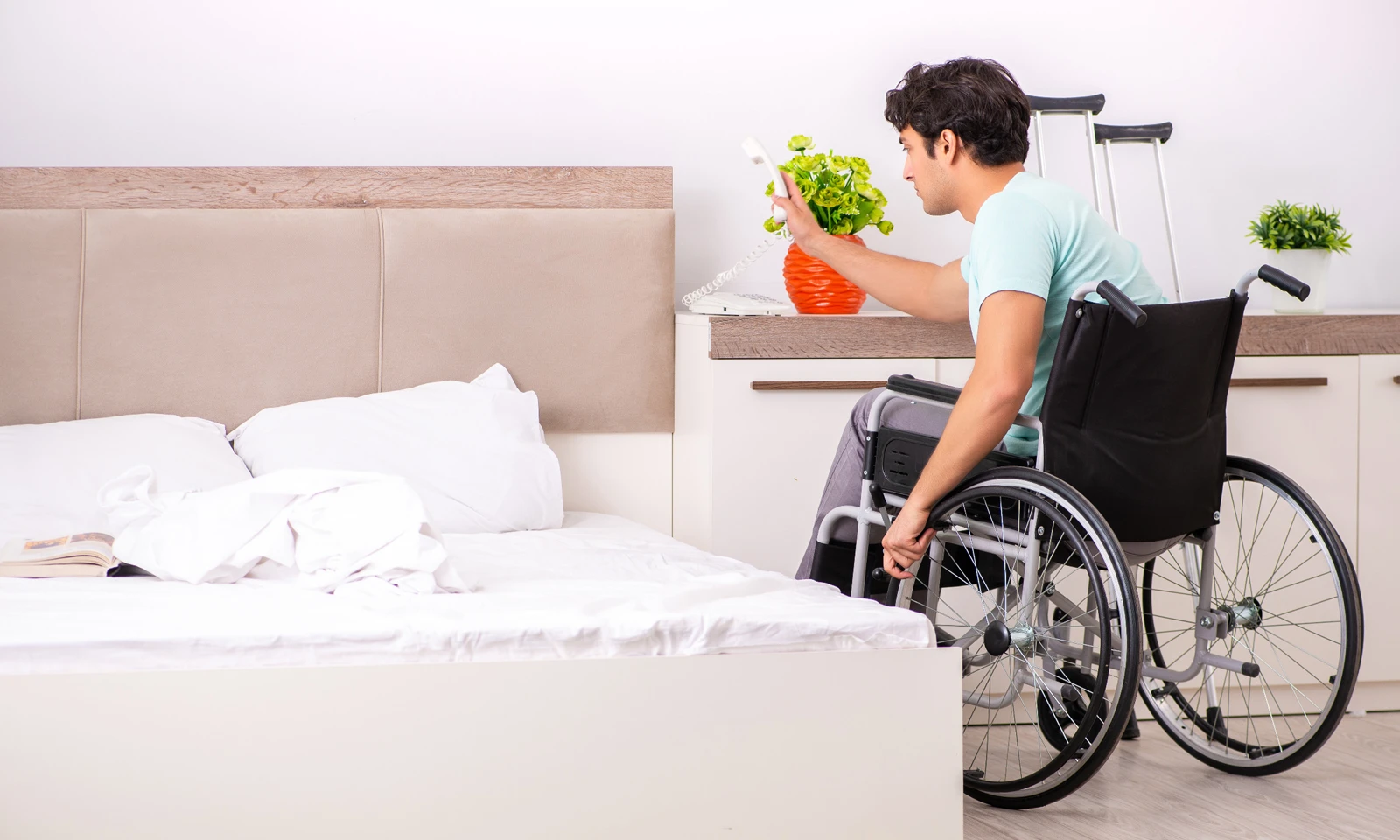Accommodation and Tenancy
Our Support Services
Have Question?
Contact us to empower your life’s journey with the best assistance. Feel free to reach out to us.

NDIS Accommodation and Tenancy (STA/MTA/Respite)
Our team can help people with disabilities locate and maintain suitable housing, get housing funding, and provide continuing in-home support. When a person with a disability is declared eligible for housing and living services, the National Disability Insurance Scheme (NDIS) offers funding to help them live more independently. Find out how you can receive accommodation services with your NDIS funds with the help of Prestige Community Care Services.
Who Can Access NDIS Accommodation?
- Participants who could benefit from a different living arrangement than their current one in order to improve their quality of life and gain access to additional and professional support.
- Participants whose mobility is restricted or limited, making it difficult to complete daily duties or use amenities such as the restroom, kitchen, and toilet both within and outside of their accommodations.
- Participants who require specialist housing and living arrangements in order to provide adequate care, such as an adult participant with complex behavioural needs.
- Participants whose quality of life would be significantly improved by shifting to more appropriate housing for receiving more care.
- Participants are now staying in medical institutions and temporary houses and are unable to locate a suitable housing alternative.
Supports included in the NDIS Housing Funding
- Home improvements performed to the participant’s own home, a rental property owned by a private individual, or an individual in social housing.
- Assist with supports to improve living skills, such as social, individual, and behavioural management skills, with the goal of increasing ability to live independently in the community.
- Help with personal hygiene and care.
- If the participant’s impairment makes it difficult for them to perform such activities around the house, they will be assisted.
- Unexpected loss of housing facilities, resulting in homelessness or emergency conditions.
Why Supported Accommodation?
If you or a loved one has a disability that requires a greater level of assistance and your present living situation can no longer meet your particular needs, assisted accommodation may be the correct alternative for you. The NDIS provides a variety of accommodation supports, ranging from short to long term, that fall into the following key categories:
- Supported Independent Living (SIL)
- Specialist Disability Accommodation (SDA)
- Short Term Accommodation or Respite
While the National Disability Insurance Scheme (NDIS) currently allows you to get supports in your home environment, the benefit of choosing assisted accommodation for yourself or a loved one is the higher level of assistance available there compared to living independently.
Supported Independent Living (SIL)
Supported Independent Living provides assistance or supervision with daily tasks in your home to help you live as independently as possible while developing your talents. It includes things like having someone help with meal preparation or personal care tasks. SIL helps you develop ability while allowing you to live independently. It is the most common sort of personal support used in shared or individual housing arrangements where some level of assistance is required all the time.
Specialist Disability Accommodation (SDA)
Specialist Disability Accommodation refers to a wide range of housing choices designed specifically for those with significant functional impairments or high demands. SDA houses are designed to be simple to access. These enable additional services you may require to be delivered more effectively and safely. SDA can be either an independent living arrangement or a communal environment with other individuals with disabilities, depending on their needs.
Medium Term Accommodation (MTA)
At Prestige Community Care Services, we offer participants the option of medium-term accommodation. If you require lodging for more than two weeks (14 days) but less than three months (90 days), medium term accommodation is what you need. This form of accommodation is intended to address a participant’s disability-related housing needs while they await disability-related services that will allow them to transition into their long-term housing solution. One example is living in medium-term care while your own house is being adapted to meet your needs. Participants in medium-term accommodation are just provided with accommodation, not meals or daily activity support. If a participant requires meals or support with daily tasks, this must be documented individually as part of their NDIS plan.
Short Term Accommodation (STA) or Respite
The NDIS funding for Short Term Accommodation supports a brief period of stay away from your usual home, including support and housing during that time. The money covers up to 14 days of care provided to you elsewhere. You might spend a little period alone or with people. It is also regularly sponsored when your normal carers are unavailable or if you wish to try something different.